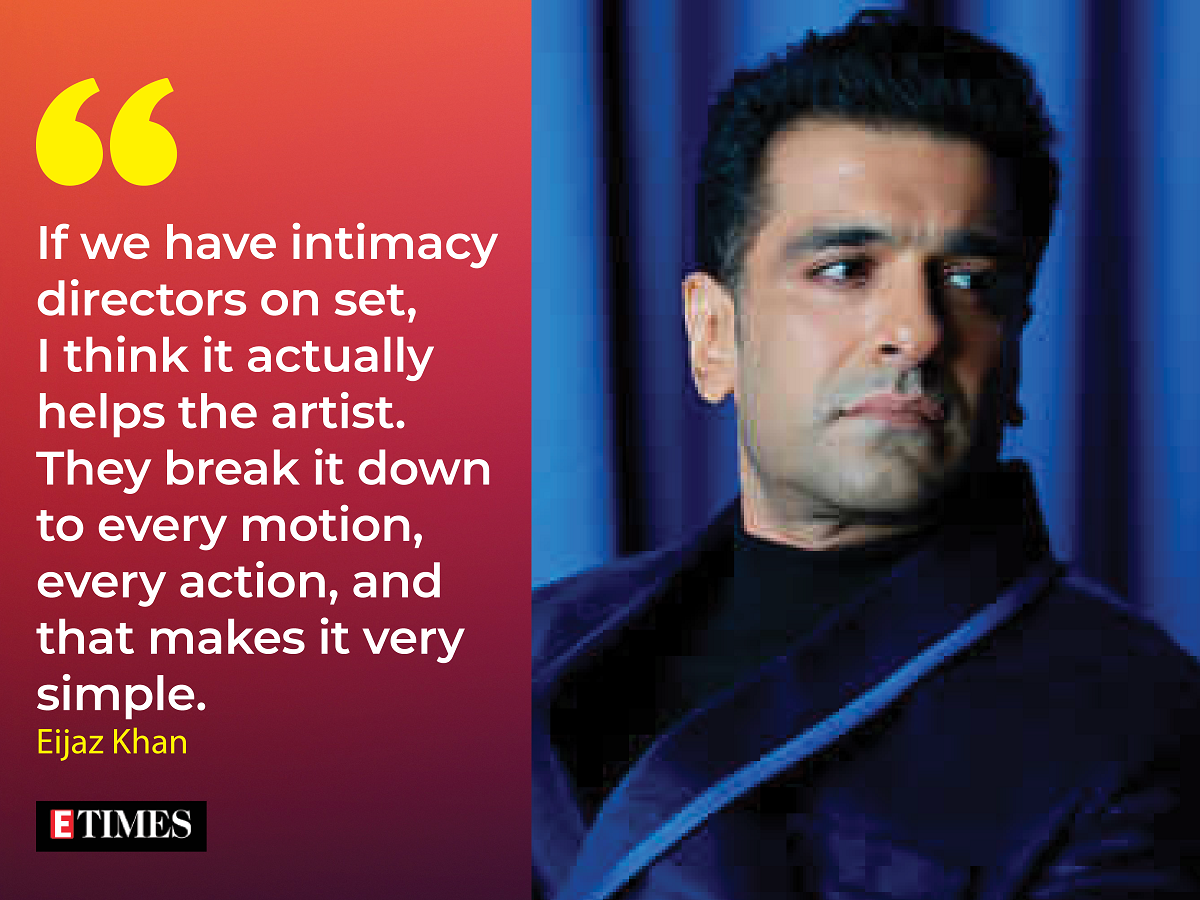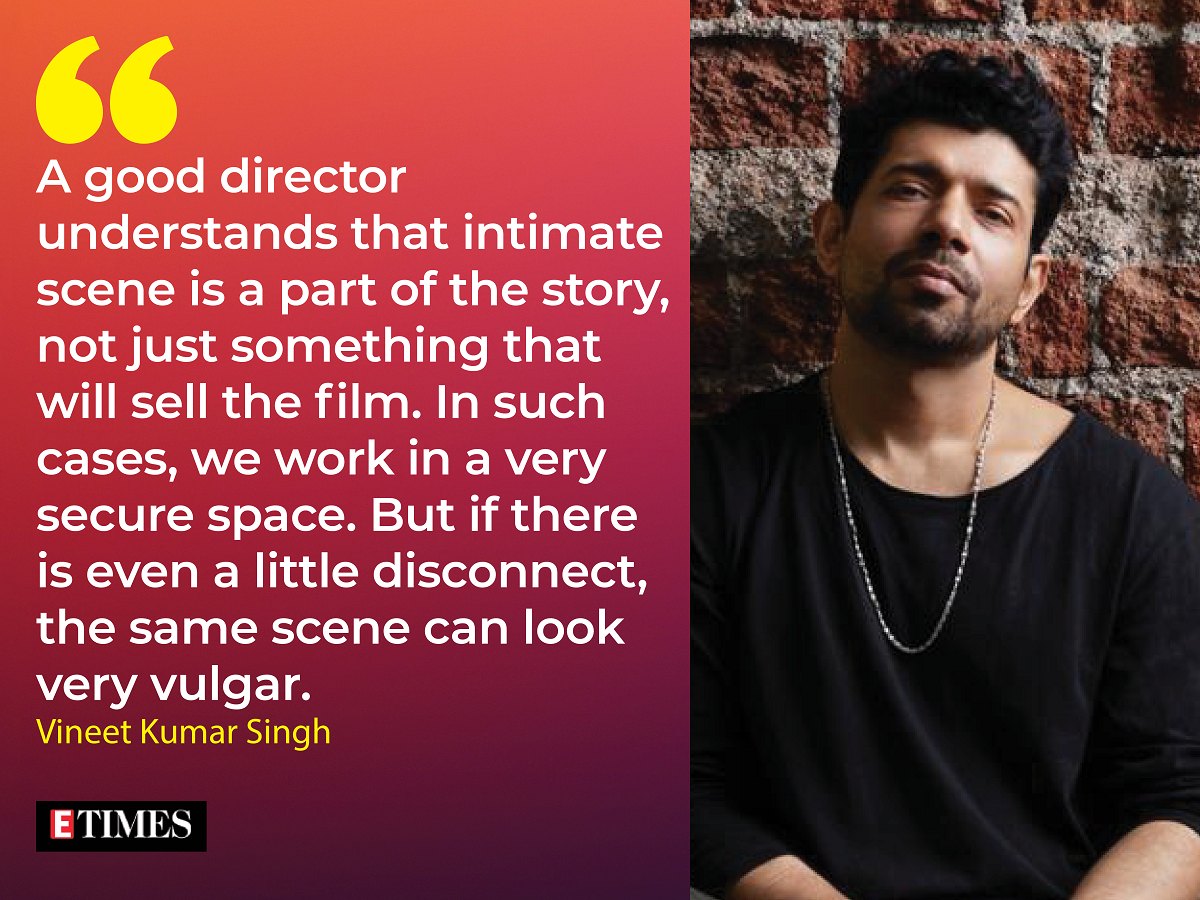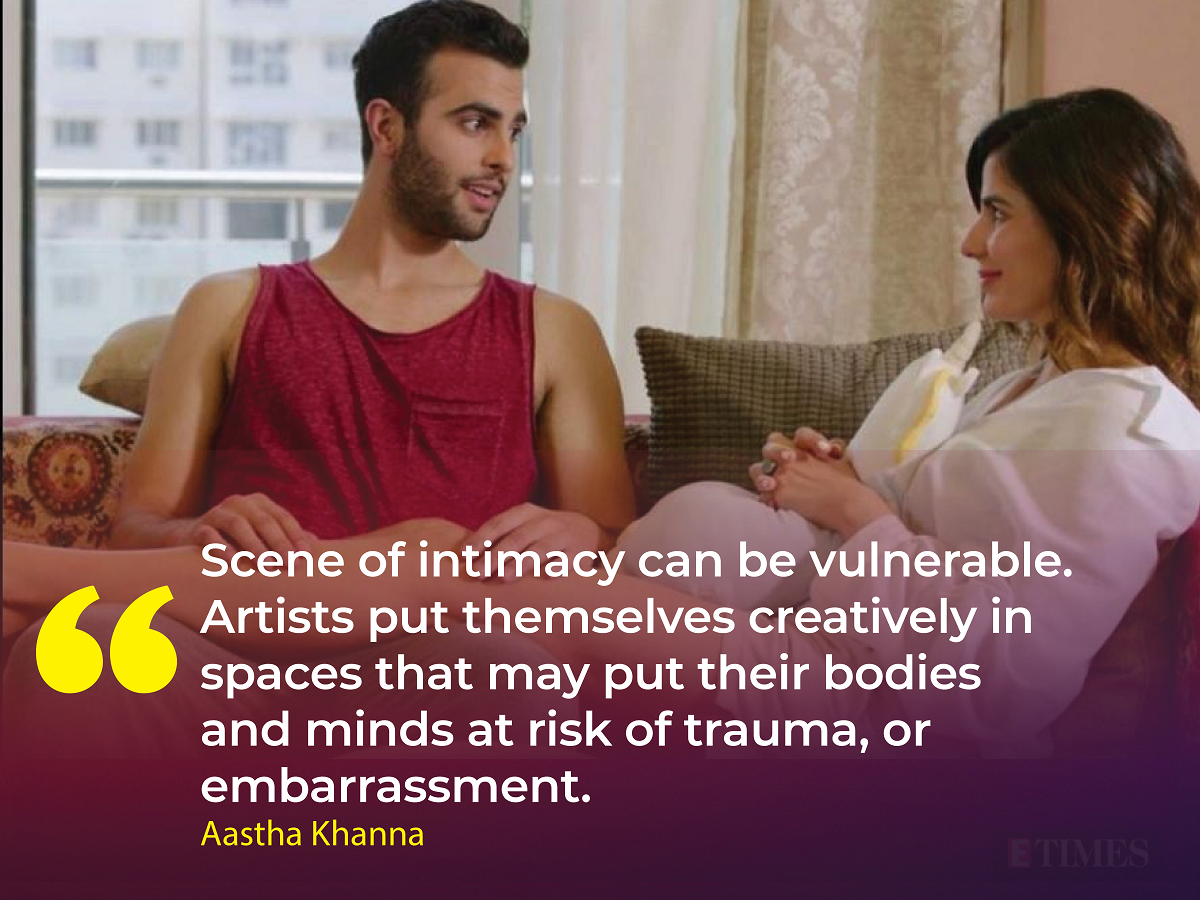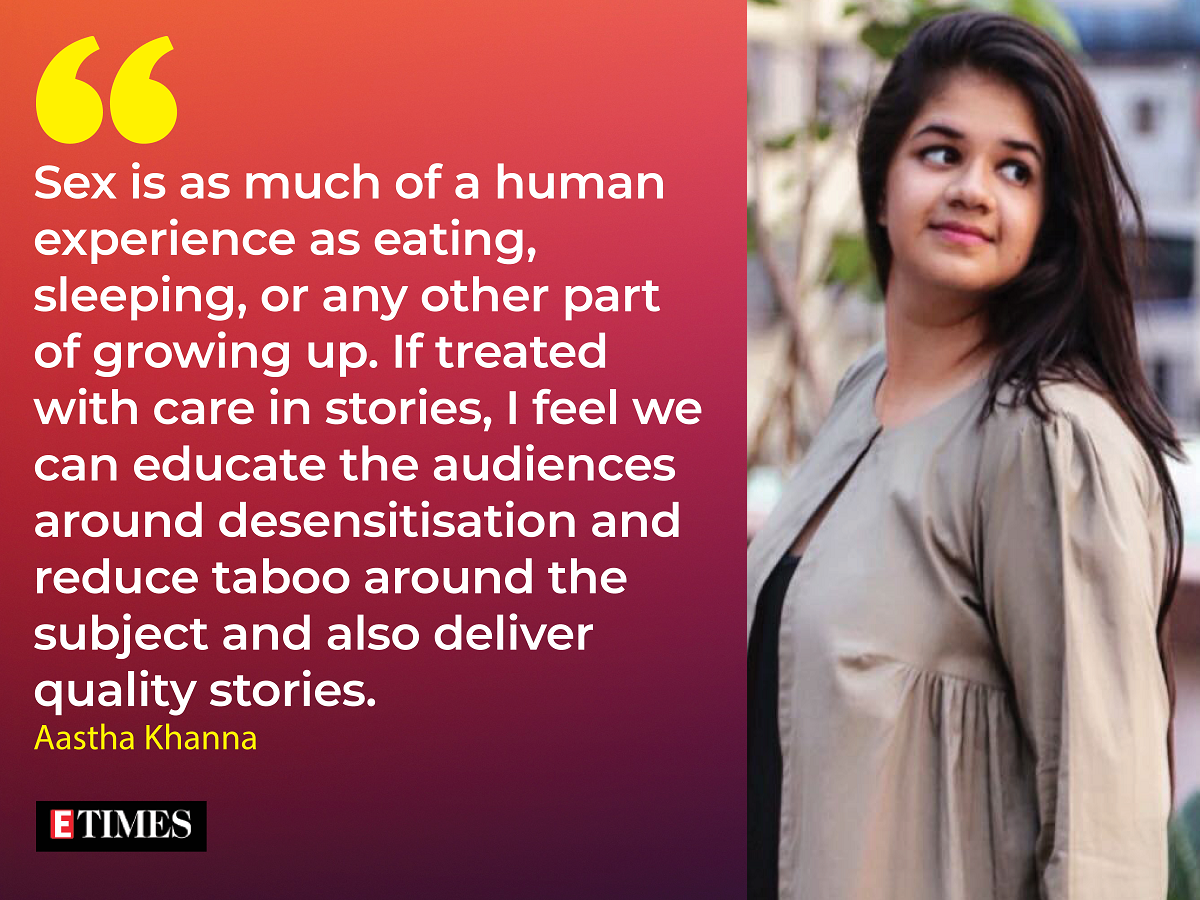Intimacy directors are a relatively fresh concept in the entertainment industry. There is a whole new breed of filmmaking professionals who are ensuring that lovemaking in cinema becomes more believable and comfortable for the actors as well as the audience. With relationships, sensuality and sex being more openly explored in Indian cinema, the emergence of intimacy directors and intimacy coordinators in the industry was inevitable and at the same time essential. It is no surprise then that leading production houses and OTT platforms are now availing the services of these professionals.
So what do these intimacy directors do? Since when did this role come into existence? What difference do they make in the filming process? We find out answers to these questions and more in this week’s #BigStory.
What does an intimacy director do?
An intimacy director coaches actors before an intimate scene to help them shed their inhibitions, choreographs their movements more aesthetically by sensitising the artistes’ bodies on how to interact with each other during a scene.
India’s first certified intimacy coordinator, Aastha Khanna sheds light on this and says, “Intimacy coordinators (IC) have many tools which they use during workshops to help rehearse and choreograph scenes of intimacy with the performers. With all the performers, the IC has one on one conversations clearly discussing the scene in detail, their boundaries and consent. Leaving no details to assumption and knowing that there’s support available, performers believe they are in a braver space and thus feel more comfortable.”
The onscreen chemistry between actors is significant for a filmmaker to tell a story from his/her perspective. So, intimacy directors also act as a bridge between the director and the actor. In fact, they take care of all aspects of shooting an intimate scene, right from choreography to contracts.
When did the need for an intimacy director/coordinator arise?
While intimacy directors may be a fairly new concept in the Indian entertainment industry, they first came into action in the US after the #MeToo movement came to light.
A film expert from Germany, Alex Billington, says, “After multiple cases of sexual abuse on set, especially regarding sex scenes, they started to develop and hire intimacy coordinators to help with these scenes properly. They have been around for a few years now.”
More than films and TV shows, web series allow for less censorship, and this makes actors more vulnerable to traumatic experiences. Since an intimacy coordinator is also certified in bystander intervention and trauma relief, they create a safe space for actors on the sets.
How is the concept evolving in India?
Intimacy is also a narrative tool and it has been widely used in several films and shows of the West. Series like ‘Sex Education’, ‘Normal People’, ‘Bridgerton’ and the likes display a very natural version of intimacy on screen. The attitude of the entertainment industry towards sensuality has undergone major changes, and the future will be even bolder. While the Indian showbiz industry is slowly opening up to the idea, the concept of intimacy directors in India is gradually but definitely catching up, reflects casting director Kunal M Shah.
“For every series that has a certain level of boldness in the subject, the makers are definitely going for an intimacy director to ensure that these sequences are shot in a way that it doesn’t come out as cringey on screen, and it looks very classy. There is a very thin line between a scene looking raunchy and cheap; and being aesthetic and classy. So yes, an intimacy director is now a necessity in projects where there are intimate scenes considering that the digital world is a little bold in its approach. Even the actors are curious to know if there are intimate scenes, how they are going to be shot, what are the portions, who is the intimacy director,” says Shah.
‘Gehraiyaan’ director Shakun Batra bats for the need for an intimacy coordinator on set. In an earlier interview, he had said that an intimacy director just makes the whole shoot atmosphere more comfortable and protective for the performer.
What do the artistes think about it?
Actress Celina Jaitley, who had taken a break from acting after her marriage a few years ago, marked her return with Ram Kamal Mukherjee’s ‘A Tribute to Rituparno Ghosh: Season’s Greetings’. It was the first mainstream film to get an intimacy coordinator.

Sharing her experience with ETimes, Celina says, “Intimacy supervisor in our film was responsible for serving the production, serving the director’s vision, and then to serve the actors, to create a really safe and empowered environment to create the best work they can and in doing so, the old custom and perception of onscreen sexuality being exploited was broken by Ram Kamal (just like Rituda) as he paid tribute to a character’s sexual expression instead of creating something that is sleazy to get viewers on board.”
Beside safety, intimacy coordinators bring a skill to choreograph the intimate content so that the actors are free to really serve character and storytelling. “I would like to stress upon the power of a ‘positive no’ wherein an actor can express their physical boundaries without fear of repercussions, and the importance of ‘agreement and consent’. That was always a problem until I did Ram Kamal Mukherjee’s film,” Celina adds.
Actor Eijaz Khan narrated his predicament to ETimes, when he shot a kissing scene for season one of Nagesh Kukunoor’s web series, ‘City Of Dreams’. “I was shooting a scene where my co-actor was supposed to start kissing me first, then I flow with the emotion and start kissing her back. Being the (shy) person that I am, I didn’t know (how to go about it) because it wasn’t specified that I will kiss her twice over here, then twice on the lip, then go on the neck… If it was specified, I would have killed the scene. But we thought we would take it organically and see where it goes. And I was getting rigid, I would kiss her twice and pull her off camera. Nagesh would get upset, but I would keep getting conscious.”
While this particular incident doesn’t speak less of Eijaz’s acting prowess, it does speak of him as a human being that may have a problem with doing intimate scenes. “I feel if we have a specialised sequence in any show or a film, we (should) get specialised directors for it. If we have intimacy directors on set, I think it actually helps the artist. It will become very simple. I haven’t come across them but I have read about them. Apparently, they break it down to every motion, every action, and that makes it very simple. If I had an intimacy coordinator on set who would break down all the actions, it would make all the difference,” he adds.

Actor Vineet Kumar Singh of ‘Mukkabaaz’ and ‘Gangs of Wasseypur’ fame thinks an intimate scene is a world in itself, and that actors are totally dependent on the director’s vision to navigate through such scenes. “How the director is envisioning the scene is very important for an actor. What is the purpose of the scene, whether it is a part of the story or is it just forced into the storyline for eyeballs… A good director understands that it is a part of the story, not just something that will sell the film. In such cases we work in a very secure space. But if there is even a little disconnect, if you are looking at it in a different way, the same scene can look very vulgar. So a director is very important for such scenes. (Talking about intimacy directors) Anything new that’s helping is welcome,” he says.

What are the challenges?
Working with or without an intimacy director can be a challenge, especially for artistes. Aastha Khanna, who has worked with Bollywood director Shakun Batra, and a couple of projects on OTT platforms, including ‘Four More Shots, Please!’, says, “Scene of intimacy can be vulnerable. Artists put themselves creatively in spaces that may put their bodies and minds at risk of trauma, or embarrassment. Performers must be supported through these scenes to protect them from this.”

COVID concerns
With the danger of the deadly virus still lurking around with new variants coming into picture, the future of shoots is uncertain. Even though Covid protocols have been implemented as part of operational procedures, several cast and crew members recently caught infection on the sets. While many shoots have come to a halt of late, it would be safe to assume that things won’t be the same even after shoots resume. Besides the mandatory Covid tests and sanitisation measures, scenes may be altered to ensure social distancing between actors. Some may have reservations of their own.
“While working on sets, we are all tested and working together in a healthy atmosphere. I haven’t come across any actors with reservations on sets. If we think about all this amidst shoots, we won’t be able to work at all. I have shot a film during the second wave in April and May, just before the peak. I completed the project just after the lockdown opened. I never asked to cut down a scene,” says Vineet.
“Covid is a tough time for the whole industry, and working in close proximity on a film set with performers, whether or not in intimate scenes puts everyone at risk if there’s a positive person around them. Productions take precautions to maintain a bubble and to regularly test for Covid within the crews to safeguard performers. Performers must also take a test just before the shoot date to be sure they’re keeping themselves and their scene partners safe. Any apprehensions that remain, must be addressed and performers always have the right to reversal of consent if they feel like they’re not comfortable at any point,” adds Aastha.
The process of becoming an intimacy director
There’s a plethora of training that goes into becoming an intimacy coordinator. Your main subjects are psychology, law and filmmaking that come together for the job.
“Intimacy director is a credit only for theatre internationally. An intimacy coordinator is the same job but for cinema. There are courses available in institutes that help train intimacy coordinators. There’s a hiring checklist available online that can guide people to know what are the different aspects of education required to become an IC,” says Aastha.
Is the Indian audience ready to embrace more sensuality on screens?

“I definitely think so. I think sex, sensuality or any other aspects of scenes of intimacy are all part of the human experience and so must make it to human stories. It’s up to the makers and the writers to check their gaze and not make these scenes titillating or scandalous in any way but depict them as normal organic parts of stories. Sex is as much of a human experience as eating, sleeping, or any other part of growing up. If treated with care in stories, I feel we can educate the audiences around desensitisation and reduce taboo around the subject while delivering quality stories,” concludes Aastha Khanna.



)



More News
Jenna Ortega’s ‘Wednesday Season 2’ Begins Filming | – Times of India
Shooting outside Drake’s home leaves security guard wounded; Police begin investigations | – Times of India
Baeksang Arts Awards 2024: Kim Soo Hyun, Lee Do Hyun, Kim Go Eun and others win big – Complete list winners – Times of India